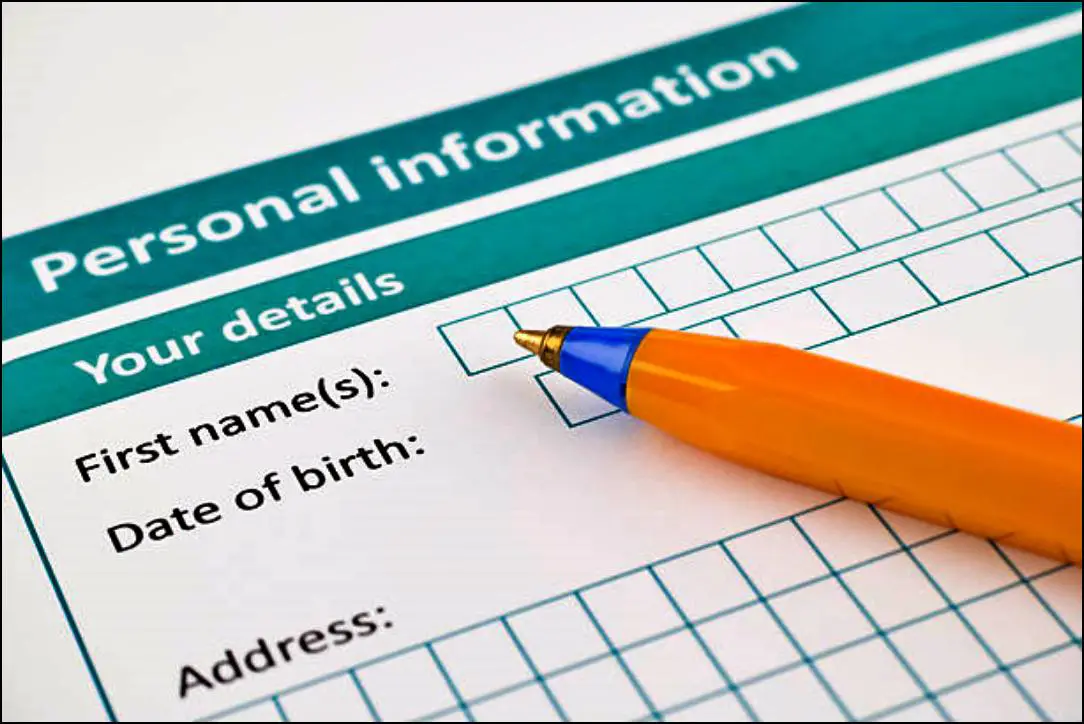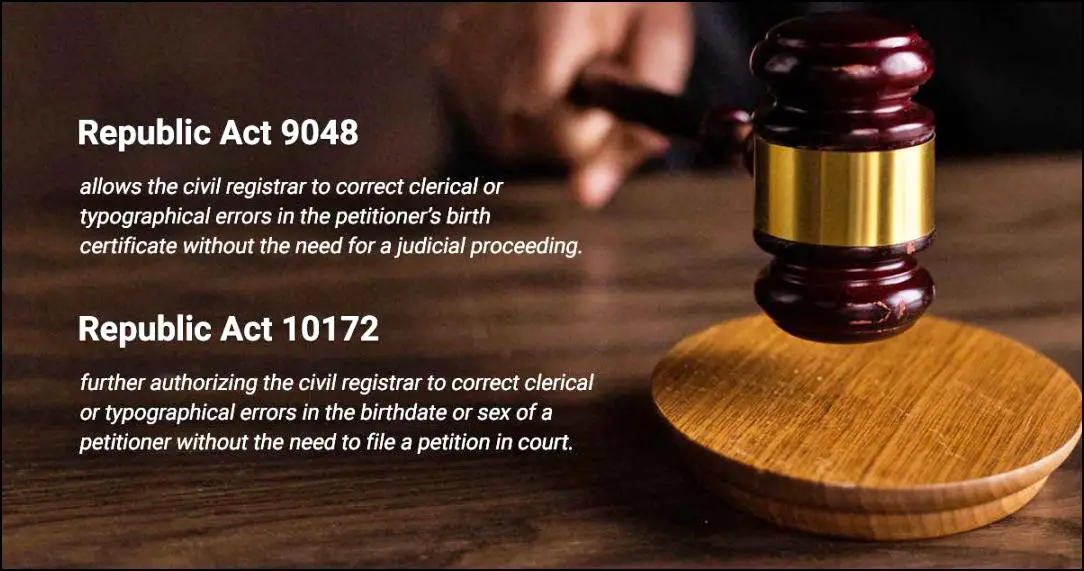When it comes to our personal identity, our name plays a crucial role in setting us apart from the rest of the world. It reflects who we are, where we come from, and often carries significant meanings and connections to our families. However, what happens when something as vital as our birth certificate, containing our name, has a mistake on it? This small error can create significant complications, like obtaining a driver’s license or arranging marriage paperwork.
Also read: How to Set an Appointment with PSA Online
If you were born in the Philippines and happen to have an error on your birth certificate, it’s good to know that you don’t need to panic. Thanks to the Revised Republic Act (RA) 9048, you can petition for a clerical correction to rectify the mistake. But before you start the process, it’s worth becoming familiar with the details. The act permits certain types of corrections, and not all errors can be fixed through this process.

Additionally, there are specific eligibility criteria that you’ll need to meet before you can file your petition. Understanding these details can be a helpful first step in getting your birth certificate corrected and ensuring that your official documents reflect your true identity.
What is Republic Act (RA) 9048?
Republic Act (RA) 9048 allows the city/municipal civil registrar or consul general to make corrections on clerical or typographical errors in an entry. They can also change the first name or nickname without requiring a judicial order.

Corrections of Name Allowed Under Republic Act 9048
Republic Act (RA) 9048 permits several types of corrections to a birth certificate, as long as they do not alter the individual’s nationality, age, or status. Here are five instances where the civil registrar can make amendments:
- Rectification of a misspelled first or last name.
- Amendment of an inaccurately spelled place of birth.
- Correction of an error in the day or month of birth.
- Rectification of the sex listed on the certificate.
- Change of the first name or nickname.
However, it’s important to note that when it comes to changing your first name or nickname, you can’t just file a petition because you feel like it. Section 4 of RA 9048 specifies three valid reasons for such a change:
- If your current first name or nickname is embarrassing, dishonorable, or exceedingly difficult to write or pronounce.
- If you have consistently used a new name and are widely recognized by that name within your community.
- If the change will help to prevent confusion.
Acceptable Reasons for First Name Correction
Republic Act (RA) 9048 permits several types of corrections to a birth certificate, as long as they do not alter the individual’s nationality, age, or status.
Here are five instances where the civil registrar can make amendments:
- Rectification of a misspelled first or last name.
- Amendment of an inaccurately spelled place of birth.
- Correction of an error in the day or month of birth.
- Rectification of the sex listed on the certificate.
- Change of the first name or nickname.
Valid Reasons for First Name Correction
However, it’s important to note that when it comes to changing your first name or nickname, you can’t just file a petition because you feel like it. Section 4 of RA 9048 specifies three valid reasons for such a change:
- If your current first name or nickname is embarrassing, dishonorable, or exceedingly difficult to write or pronounce.
- If you have consistently used a new name and are widely recognized by that name within your community.
- If the change will help to prevent confusion.
Requirements Needed when Filing a Petition for a Correction of Clerical Error in PSA Birth Certificate
When filing a petition for the correction of a clerical error in your PSA Birth Certificate, you need to follow a specific format as prescribed by the law. Here are the essentials:

1. Contents of the Petition
Your petition should take the form of a notarized affidavit, containing:
- Facts that justify the petition
- Details demonstrating your ability to testify on the matters mentioned in the affidavit
- The incorrect entries to be corrected and the proposed corrections
2. Supporting Documents
Along with your affidavit, attach the following supporting documents:
- A certified true copy of the birth certificate or the registry book page with the entry or entries to be corrected
- At least two public or private documents showing the correct entry or entries, which will serve as the basis for the correction or change
- A certificate from suitable law enforcement agencies indicating that you have no pending case or criminal record
- Any other documents deemed necessary and relevant for the approval of the petition by you, the city or municipal civil registrar, or consul general
3. Distribution of the Petition Documents
File three copies of the petition and its supporting documents:
- First copy: For the concerned city or municipal civil registrar or consul general
- Second copy: For the Office of the Civil Registrar General
- Third copy: For your records
4. Publication
If your petition is for changing a first name or nickname, it must be published at least once a week for two consecutive weeks in a widely circulated newspaper, as per Section 5 of RA 9048.
5. Filing Fee
A reasonable fee is collected for processing the petition:
- Php1,000 for correction of clerical or typographical errors
- Php3,000 for change of first name or nickname.
If you’re filing with the consul general, the fees are:
- $50 for correction of clerical or typographical errors
- $150 for change of first name or nickname
Note: If you’re an indigent petitioner, you’re exempted from paying the filing fee.
Reviewing of the Petition Documents
Once you have submitted your petition and the supporting documents, the civil registrar or consul general will review them. If your affidavit meets the necessary format and content requirements, it will be displayed in a public area for a period of 10 consecutive days. After fulfilling the posting and/or publication prerequisites, the office will then make a decision on whether to approve your petition. The decision-making process typically takes around five business days.
Also read: How to Get PSA Marriage Certificate Online
Reasons why it is important to have your first name correctly spelled in your PSA Birth Certificate
- Identity Verification: Your first name on your PSA Birth Certificate is a primary identifier. It’s used for verification in various legal, educational, and financial transactions.
- Legal Consistency: To avoid legal complications, the name on your birth certificate should match with other identification documents like passports, driving licenses, etc.
- Ease of Transaction: Having a correctly spelled name simplifies processes like applying for passports, visas, or opening bank accounts.
- Academic Records: Schools and universities use your birth certificate as a reference for academic records. A misspelled name can lead to confusion and record discrepancies.
- Employment: Employers verify personal information during the hiring process. A correct name ensures smooth verification and prevents potential employment issues.
- Marriage and Family Documents: A correctly spelled name is crucial for marriage licenses, registering a child’s birth, and other family-related legal documents.
- Health and Insurance Records: For accurate medical history and insurance claims, it’s important that your name matches across all health documents.
- Prevention of Identity Fraud: A correctly spelled name helps in preventing identity theft or fraud.
- Inheritance and Property Matters: For matters related to inheritance or property, a correct name on your birth certificate is essential to establish rightful ownership.
- International Travel: For international travel, the name on your passport must match the name on your birth certificate. A correct first name is vital for smooth immigration processes.
Also read: How to Get a Copy of Your PSA Birth Certificate
Summary
Changing your first name on your PSA birth certificate might seem like a daunting process that involves a court hearing, but there’s actually a simple way to do it without stepping foot into a courtroom. Thanks to RA 9048, Filipinos are given the option to request a change in their first name due to a clerical or typographical error, or a change in first name to nickname or alias.
This process can be done through the Local Civil Registrar where your birth certificate was registered and only requires a filled-out application form, supporting documents, and a small fee. It’s crucial to ensure that all information provided is accurate to avoid any delays or further complications. With this simple method, changing your first name has never been easier.